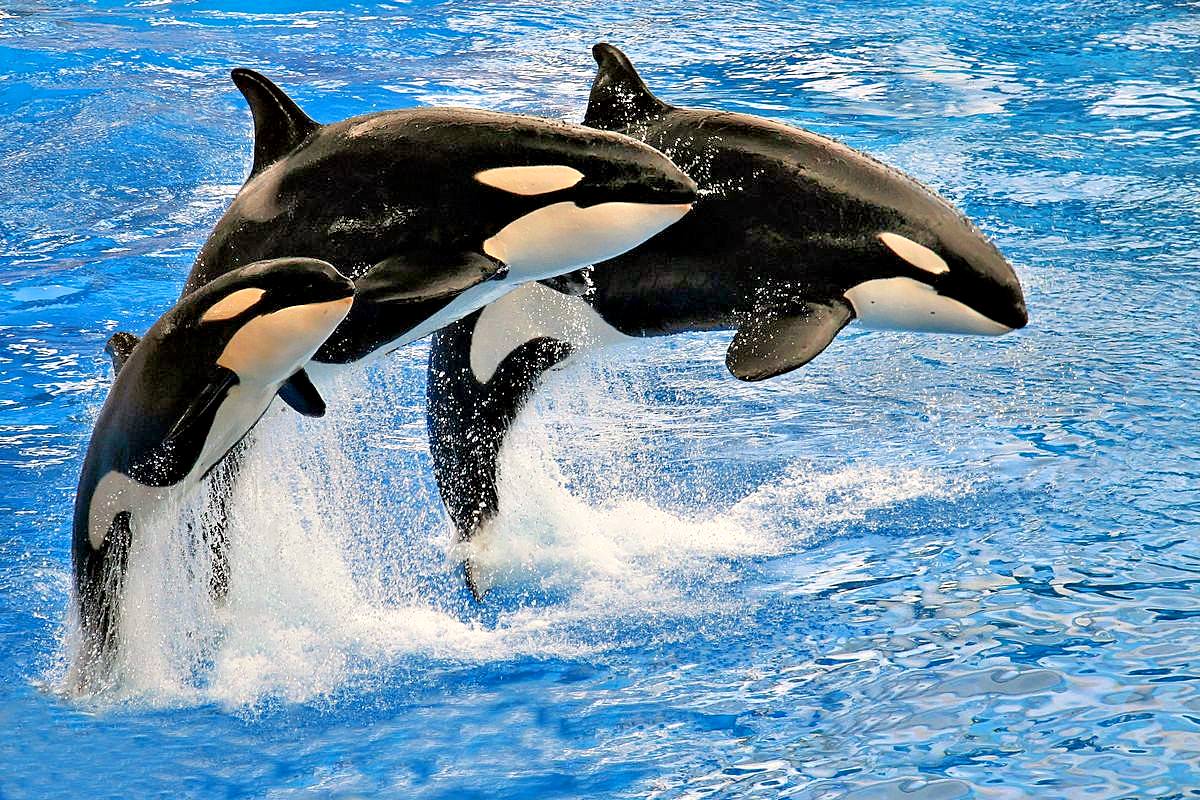In recent years, the world has witnessed a baffling phenomenon: orcas, also known as killer whales, have been exhibiting increasingly aggressive behavior towards human vessels. These intelligent marine mammals, once admired for their majestic presence and friendly interactions with humans, have taken a concerning turn, leaving scientists and the public alike puzzled and apprehensive.
🌊 A Wave of Attacks 🚢
The epicenter of this unusual activity has been the Strait of Gibraltar, a vital maritime corridor connecting the Mediterranean Sea and the Atlantic Ocean. It is here where a group of orcas, dubbed the “Iberian Orcas,” have been relentlessly targeting ships, ramming them with their powerful bodies and even gnawing at their rudders.
The numbers speak volumes: over the past three years, more than 500 incidents have been reported in this region alone. In some cases, the attacks have been so severe that ships have been left inoperable, forced to limp back to port or, in the most extreme situations, sinking entirely. Four vessels have met this unfortunate fate, two in the previous year and two more in the current one.
Initially confined to the Strait of Gibraltar, this peculiar behavior has now spread northward, with incidents recorded as far as the waters off the coast of northern England, a staggering 3,200 kilometers (2,000 miles) away. It appears that the “trend” initiated by the Iberian Orcas is gaining traction within the orca world, raising concerns about the potential for even more widespread and severe attacks.
🤔 Theories and Speculations 🧠
As scientists grapple with this enigma, various theories have emerged to explain the orcas’ sudden aggression towards human vessels. One prevailing hypothesis suggests that the attacks may have originated from a single incident in the summer of 2020, when a pregnant orca, dubbed the “White Gladis,” was allegedly struck or entangled by a vessel.
In retaliation, White Gladis is believed to have initiated the first attack, inspiring other orcas within her family and neighboring pods to follow suit. This “chain reaction” has since escalated, with at least 15 orcas confirmed to have participated in vessel rammings, accounting for over a third of the Iberian Orca population.
However, some experts posit that the orcas’ motivations may be rooted in a more playful, albeit misguided, impulse. Orcas are known for their intelligence and love of games, often engaging in complex hunting techniques and even “playing” with their prey before consuming it.
This theory suggests that the vessel attacks could be a new fad or “game” among the younger orcas, particularly since a significant proportion of the confirmed attackers are juveniles. Just as human teenagers might indulge in risky or destructive behavior for thrills, these young orcas may be seeking a novel form of entertainment, albeit one with potentially catastrophic consequences.
🐟 The Dwindling Fish Supply 🎣
Another plausible explanation for the orcas’ hostile behavior lies in the dwindling fish stocks, particularly their preferred prey, the Atlantic bluefin tuna. As human fishing activities have drastically reduced tuna populations by as much as 90% since the 1970s, orcas may be lashing out in frustration and desperation.
For eons, orcas have marveled at the ingenuity of human fishing practices, which allowed fishermen to effortlessly catch tuna from depths beyond the orcas’ reach. Initially, the orcas saw this as an opportunity, lurking near fishing vessels and snatching their share of the catch before it could be hauled aboard.
However, as tuna populations plummeted, the orcas’ once-abundant buffet became increasingly scarce. Their envy towards human fishing methods may have turned to resentment, prompting them to strike back against the very vessels that once provided them with an easy meal.
👋 A Cry for Attention or a Declaration of War? 🔥
As scientists continue to study and debate the underlying causes of this bizarre phenomenon, the question remains: are the orcas’ actions a mere cry for attention, a desperate plea for humans to curb their unsustainable fishing practices, or a declaration of outright war against our species?
While some experts view the attacks as a harmless, albeit concerning, fad that will eventually fade away, others fear that the orcas’ aggression may escalate further, posing a genuine threat to maritime safety and human lives.
Regardless of the motivation, one thing is certain: the orcas have captured the world’s attention, and their peculiar behavior serves as a stark reminder of the delicate balance between human activities and the well-being of Earth’s magnificent marine ecosystems.
As we navigate these uncharted waters, it is imperative that we approach this issue with open minds, a willingness to understand the orcas’ perspective, and a commitment to finding sustainable solutions that address both their needs and our own.
Copyright © 2025 Hea1th.net

